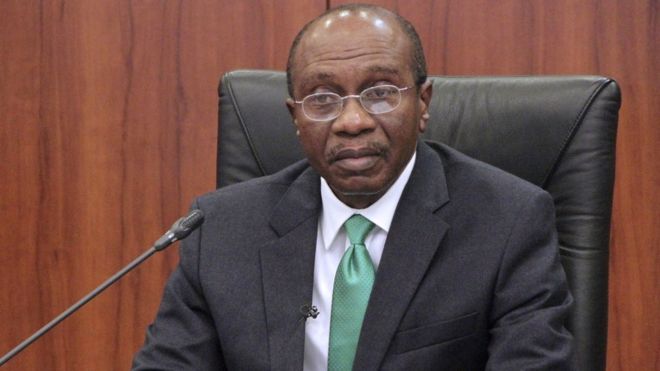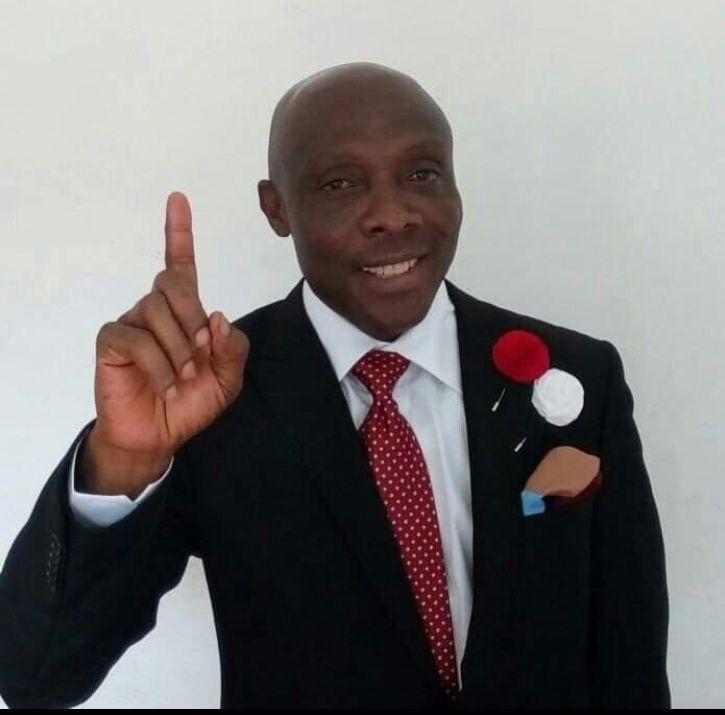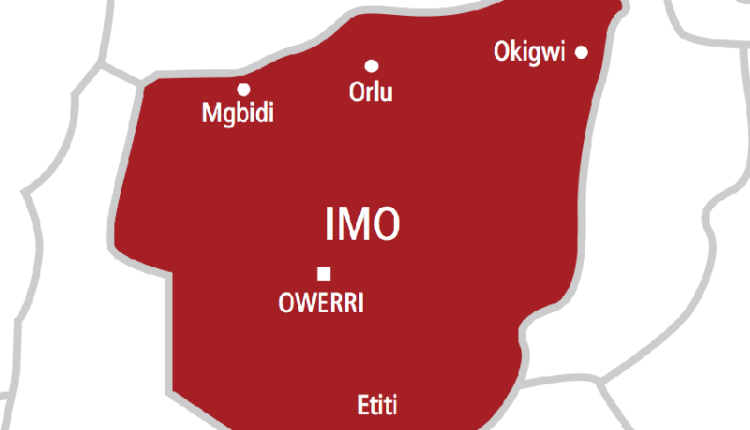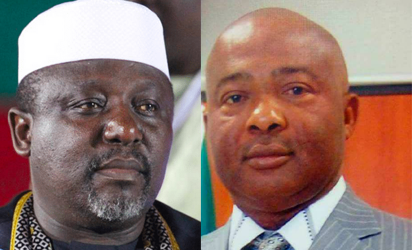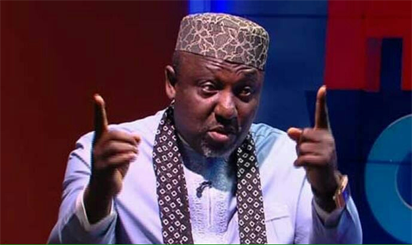THE MYSTERY OF THE 388 POLLING UNITS (PART 2)

THE MYSTERY OF THE 388 POLLING UNITS (PART 2)
By Collins Ughalaa
On Friday, February 21, 2020, we started a series on the above subject that has dominated public discourse for over a month now. We understand the seriousness of the issues canvassed. But many people are worried that many of the discussants have only engaged in emotional aerobics, twisting the essence of what the Supreme Court said in their judgement of Tuesday, January 14, 2020, which ousted Rt. Hon. Emeka Ihedioha as the Governor of Imo State and ushered in Senator Hope Uzodinma as the new Governor of the state. Having studied the Supreme Court Judgement and the arguments in favour of the review, we attempted explaining the import, relevance, significance, consequence and ramifications of the 388 polling units and what the Supreme Court said on the Motion on Notice filed by the PDP and the former Governor, in relation to the judgment of the Supreme Court in the case between Ugwumba Uche Nwosu who contested the governorship election on the platform of the Action Alliance (AA) and the Action People’s Party (APP).
The Supreme Court was clear enough on the matter when it ruled that “the validity of the 1st appellant’s (Senator Hope Uzodinma’s) nomination as a candidate of the 2nd appellant (APC) for the governorship election in Imo State is a fresh issue raised for the first time in this court without leave. Furthermore, it is a pre-election matter, in respect of which this court lacks original jurisdiction to determine same within a post-election appeal. The application therefore falls and is accordingly dismissed”. Subsequently, the Supreme Court highlighted the fact that the issue brought before it by Senator Hope Uzodinma and the APC, which commenced from the Governorship Election Tribunal, “was on the exclusion of votes scored by the appellants in 388 polling units from ward collection results (Form EC8B) which led to a wrong declaration of the 1st respondent as the winner of the election. The issue of the 1st applicant’s nomination did not arise”. It added that “The original jurisdiction conferred on this court (the Supreme Court) by section 232(1) of the Constitution does not extend to pre-election or election matters”. It also pointed out the Supreme Court “has no original jurisdiction to determine whether an aspirant was properly nominated by his party as a candidate for election” or not.
Another issue that appears knotty to some people is the validity of the 388 polling units where Governor Hope Uzodinma claimed he garnered 213,695 votes. As noted by the Supreme Court, the claim was canvassed right from the Governorship Election Tribunal to the Court of Appeal where a minority judgment of 4:1 declared him duly elected Governor of the state. The court stated: “it is contended on behalf of the applicants that the crux of their case as pleaded in paragraphs 19, 20, 21, 22, 23 and 24 of their petition and as found by the two lower courts, was that scores due to the appellant from 388 polling units were not collated into the forms EC8B, thereby denying the appellants 213,695 votes while the respondents denied the exclusion of such results and the 3rd respondent (INEC) specifically pleaded in paragraph 14 of its reply to the petition that the authentic results would be tendered at the trial”. It was also clearly stated in the January 14 judgement that although the respondents “relied heavily on the assertion that Exhibit PPP1 – PPP366 were fake, no evidence was adduced to prove the assertion at all, let alone beyond reasonable doubt. The respondents failed to produce the ‘genuine’ results as pleaded”. And, on page 39, the Supreme Court also agreed with the appellants that “the respondents failed to prove that the documents were fake or forged”.
Continuing, the Supreme Court stated: “Once again, I agree with the dissenting opinion of Oho, JCA, that the respondents failed to comply with these provisions. With respects to the learned counsel to the 1st respondent, it is not correct to state that the 1st respondent did not need to comply with them because the votes credited to him were far higher than the votes credited to the applicants…. As regards the 3rd respondent (INEC), it failed woefully to tender the results it termed ‘genuine’, which would have rebutted the presumption of regularity in favour of the documents tendered by the applicants”.
There is yet another grouse on which some people quarrel with the Supreme Court. They allege that after the 213,695 votes belonging to the Senator Uzodinma were added by the Supreme Court, there is now over voting. According to them, the total number of voters in the election now surpasses the number of accredited voters. While many commentators had repeatedly pointed out similar allegations of over voting on the part of the PDP in some local government areas of the state – which they claimed gave the PDP the initial lead, we contend that the judgement of the Supreme Court had put paid to the question. In more than ten instances the Supreme Court repeated that the appeal before it bothered on the fact that the 213,695 votes from the 388 polling units belonging to the APC and Senator Uzodinma were excluded from the Form EC8B by INEC, and not whether election held in those 388 polling units or not, and not whether there was irregularity or not, especially since INEC had pleaded that it would tender the original results from the same 388 polling units, which it failed to do. On several occasions also the Supreme Court said that none of the respondents was able to prove the allegation of forgery, saying that “the documents relied upon were alleged to be fake or forged but none of the respondents was able to prove forgery”.
The Supreme Court had noted that by virtue of section 232(1) of the Constitution that set it up, it does not hear fresh cases. In line with this, the Court disallowed the Motion on Notice filed by the PDP and the former Governor on January 10, 2020. To hear, therefore, a fresh allegation of over voting would put the Supreme Court in breach of section 232(1). Moreover, the respondents did not in any way plead that there would be over voting in the event the 213,695 votes were added to the existing figure. The Supreme Court had also indicated that had INEC or any of the respondents tendered what they termed original copies of the results from the 388 polling units, it could have swayed the outcome of the judgement to a different side. But they failed to do so.
A careful perusal of the Judgement of the Supreme Court would suggest, therefore, that those making fresh calculations and churning out new figures are on a voyage to deceive and probably embarrass the Justices of the Supreme and paint the entire judiciary black. Same way, the misunderstanding of the import of the 388 polling units has led some people to persist in their allegation of fraud, this time saying that Senator Uzodinma obtained the January 14 judgement by fraud. Recall that the Supreme Court had said that allegation of fraud or forgery is of a criminal nature and must not only be proved beyond reasonable doubt, but must also be proved that the person against whom the allegation was made committed the fraud or forgery either by himself or his agents.
“Having pleaded that the documents were false, the respondents made allegations of a criminal nature against the applicants. They were required to plead the specific elements of fraud and lead evidence showing the genuine results. Not only must the allegation be proved beyond reasonable doubt, it must also be proved that the appellants personally committed the forgery or aided and abetted the commission of the crime through their agents or officials. It is well settled that mere averment in pleadings do not constitute evidence”, said the Supreme Court. To therefore accuse Senator Uzodinma of obtaining judgement by fraud is to fall, once again, into the problem earlier noted by the Supreme Court, where the respondents, now applicants, failed to prove their allegation of forgery against the applicants – Senator Hope Uzodinma and the APC.
The media is also awash in “a fresh narrative” that purports to give credence to the allegation of over voting in the 388 polling units. The new twist might appear plausible to some people on the face value. But the Supreme Court deals on facts and the law. The new calculations, or “fresh discoveries” purporting “conflicting wrong numbers, facts and figures in the fake 388 polling units and false votes claimed by Senator Hope Uzodimma”, might mean procuring fresh evidence to upturn an already decided matter by the Supreme Court. In one of the “new discoveries” or “latest revelations”, it was argued that “the total number of Permanent Voters Cards (PVC) collected in the 388 polling units vis-a-vis the total number of votes cast in Uzodimma’s fake 388 polling units … are greater than the total number of PVC collected in the fake 388 polling units”. The revelator claimed that “a total of 245,115 people were officially recorded as registered voters in the 388 polling units. A total of 199,415 was the number of PVC collected in the 388 polling units. Uzodimma wrote 215,582 votes for himself and 1,904 for Gov. Ihedioha. Other 68 candidates in the election had zero vote”. He added: “The mathematics has shown that the false 215,582 votes Uzodimma wrote for himself is higher than the 199,415 total number of PVC collected by 16167. In other words, Uzodimma wrote more votes for himself than the total number of PVC collected in the supposed 388 polling units that have been proved to be fake….The second discovery from the same latest mathematics is that in the fake 388 polling units there are clear 8 polling units in which Uzodimma’s votes were higher than the total registered voters”.
It is our considered opinion that the claims against the January 14, 2020, have taken more of a dimension of public persuasion through needless repetition of same argument. The Supreme Court does not think like we do, neither does it dance to emotional drumbeats, but takes cognizance of the facts before it. And if we take the discipline to tame our emotions and read through the judgement once more, these new revelations might become unnecessary. Taking fresh discoveries to the Supreme Court in a matter it had divested itself of would mean asking the Supreme to sit in appeal against its judgement, or creating a new court that sits above the Supreme Court.
…To be continued.
Collins Ughalaa could be reached via email: Ughalaacollins@gmail.com; or via telephone: 07066222944.
